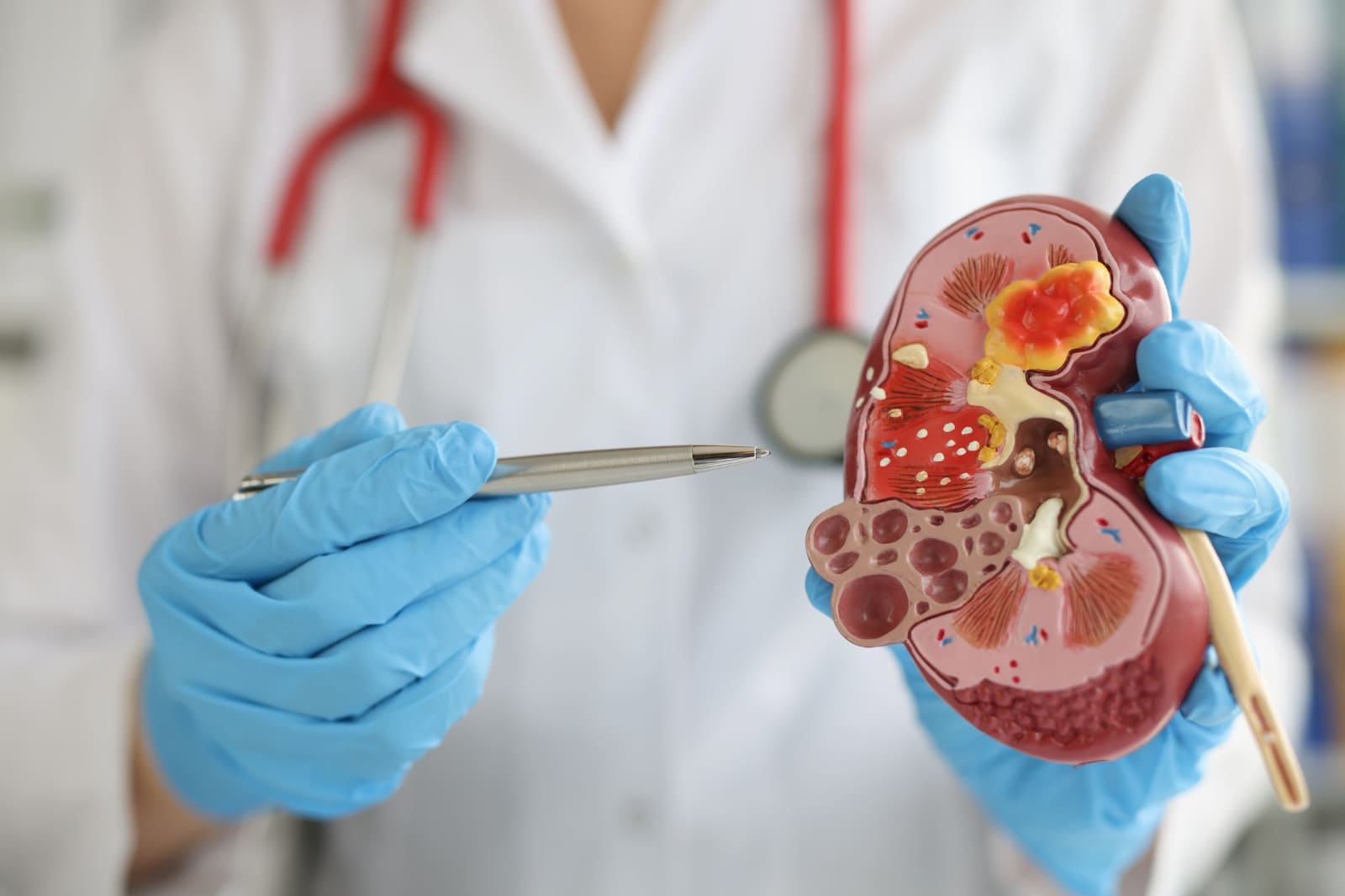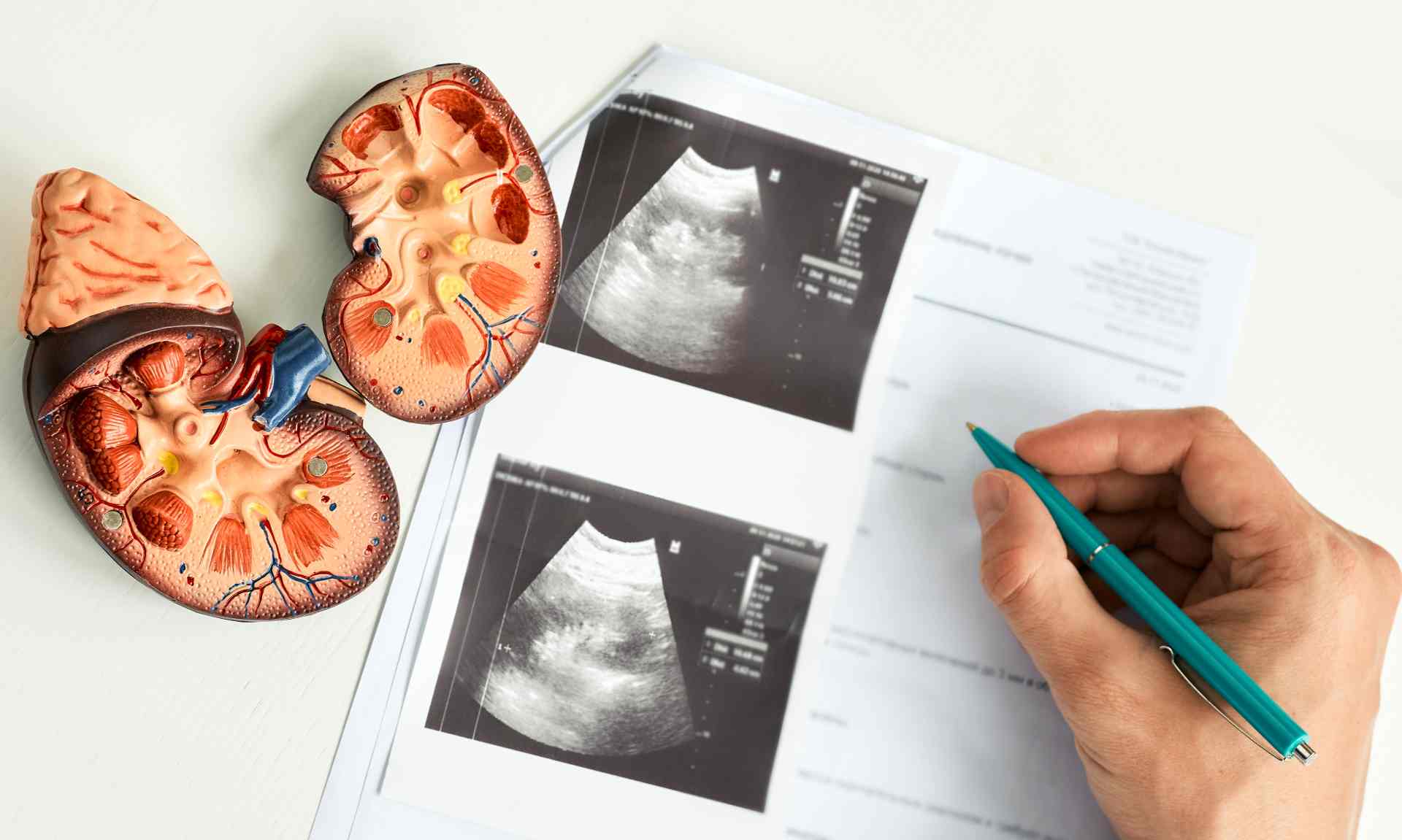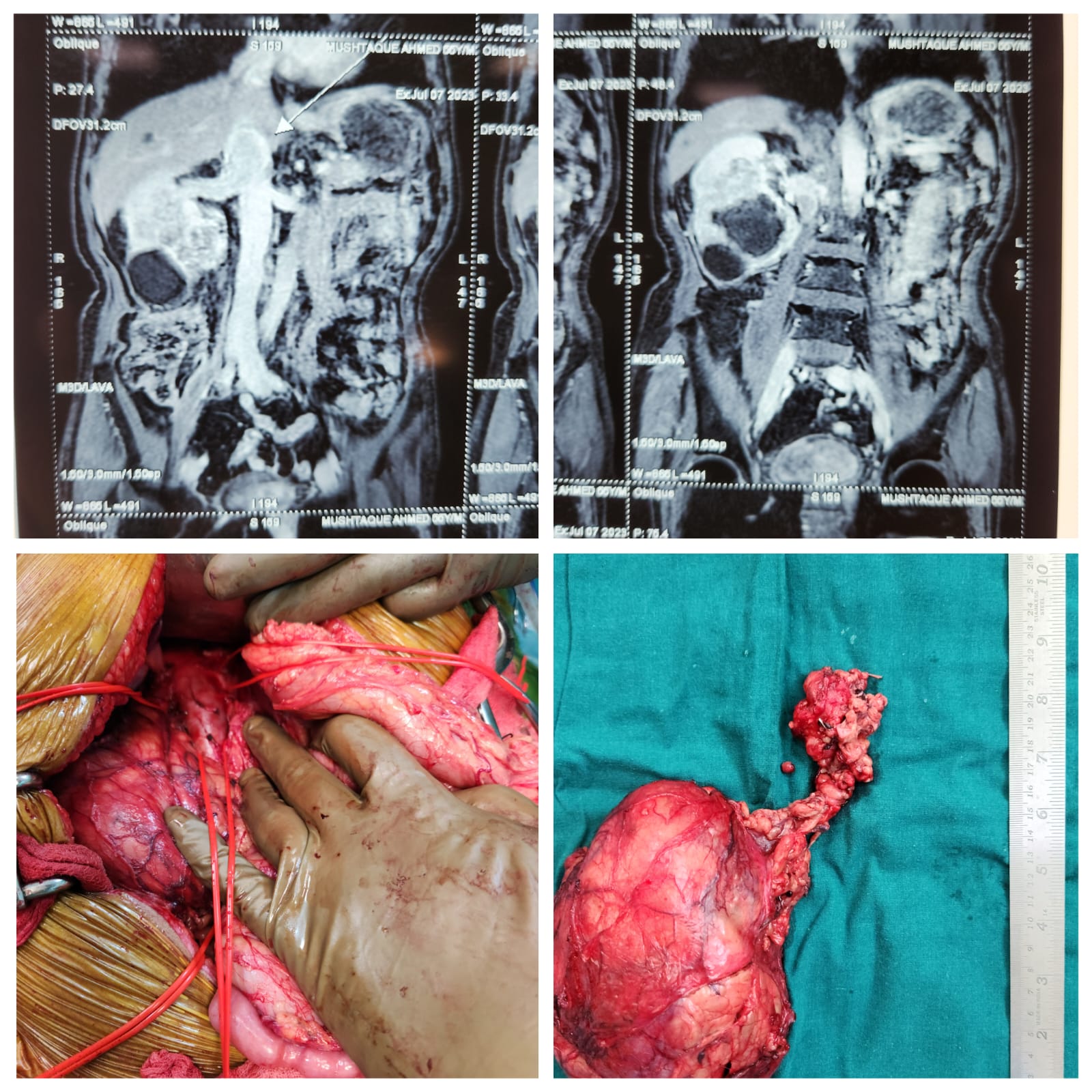-
Is Removing a Kidney Stone a Big Operation!
Kidney stones are a common yet painful condition that affects a significant portion of the population. They are hard deposits made of minerals and salts that form inside your kidneys and can cause severe pain when passing through the urinary tract. The treatment and removal of kidney stones vary depending on their size, type, and location. This raises the question: Is removing a kidney stone a big operation? The answer depends on several factors, including the method of removal and the complexity of the case. Understanding Kidney Stones Kidney stones can range
-
Is Robotic Surgery Safe for Cancer Patients?
Robotic surgery, an advanced technological marvel, has revolutionized the field of cancer treatment. By leveraging robotic systems, surgeons can perform complex procedures with enhanced precision and control. But with the rise of this technology, an essential question arises: Is robotic surgery safe for cancer patients? Let's delve into this topic to understand the benefits, risks, and overall safety of robotic surgery for those battling cancer. Understanding Robotic Surgery Robotic surgery involves the use of robotic systems to assist in surgical procedures. The most prominent system is the da Vinci Surgical System, which
-
Can Urine Show Signs of Cancer?
Detecting cancer early can significantly improve treatment outcomes and survival rates. While blood tests and imaging are commonly used for diagnosis, there’s growing interest in the potential of urine tests to reveal signs of cancer. So, can urine show signs of cancer? Let’s explore how urine can be a window into our health and what signs it might reveal. How Urine Tests Work Urine tests analyze the contents of urine to detect abnormalities. Our urine contains waste products filtered out by the kidneys, along with various other substances such as proteins, cells,
-
Preventing Prostate Cancer: A Layperson’s Guide
Prostate cancer is a significant concern for men worldwide. It's the second most common cancer in men, with an estimated 1.4 million new cases diagnosed each year. While the statistics might seem daunting, there's much that can be done to prevent prostate cancer or detect it early when treatment is most effective. Understanding Prostate Cancer Risk Factors Prostate cancer risk factors include age, family history, ethnicity, and lifestyle choices. Men over 50, those with a family history of prostate cancer, and African American men are at higher risk. Symptoms Early prostate cancer often doesn't cause
-
Overcoming Complexity: The Role of Robotic Surgery in Treating Complex Kidney Tumors
Robotic surgery has revolutionized the field of medicine, offering advanced techniques that enhance precision and minimize invasiveness. It involves the use of robotic systems to assist surgeons in performing complex procedures with greater control and accuracy. The evolution of robotic surgery technology has paved the way for innovative approaches to treating various medical conditions, including complex kidney tumors. Complexity in Kidney Tumor Treatment Complex kidney tumors present unique challenges due to their intricate nature and proximity to vital organs. Traditional surgical approaches may encounter limitations in effectively addressing these complexities, leading to
-
Avoiding Kidney Stones: A Comprehensive Diet Plan for Prevention and Post-Removal Recovery
Kidney stones are solid deposits that form in the kidneys due to various factors such as dehydration, certain medical conditions, or dietary habits. They can cause intense pain and discomfort, and managing them involves not only medical treatment but also dietary modifications. This article aims to provide a detailed diet plan to prevent kidney stones and support recovery post-removal. 1. Importance of Diet in Kidney Stone Prevention Diet plays a crucial role in preventing the formation of kidney stones. Certain foods contribute to the development of stones, while others can help reduce
-
Preventing Kidney Cancer: A Comprehensive Guide
Kidney cancer is a serious and potentially life-threatening condition that affects millions of people worldwide. While certain risk factors for kidney cancer, such as genetics and family history, are beyond our control, there are proactive steps individuals can take to reduce their risk. By understanding the potential causes and adopting healthy lifestyle choices, it is possible to lower the chances of developing kidney cancer. Quit Smoking: Smoking is a significant risk factor for developing kidney cancer. For individuals who smoke, quitting is one of the most effective ways to reduce
-
Kidney Cancer
Radical nephrectomy with IVC thrombectomy is an operation to remove kidney cancer and tumor thrombus from inferior vena cava ( largest blood vessel in human body). This operation is with curative intent and complete cancer is removed from body . Kidney Cancer RCC IVC thrombectomy Renaltumor
-
How to Avoid Kidney Stones
[vc_row][vc_column][vc_column_text]Kidney stones are one of the most common urinary tract problems. Each year, more than half a million people go to emergency rooms because of them. Most kidney stones are small and pass out of the body without causing any problems. But some kidney stones are large and can get stuck in the urinary tract, causing pain and other problems.[/vc_column_text][vc_column_text] What are kidney stones? [/vc_column_text][vc_column_text]Kidney stones are small, hard objects that form in the kidneys. The stones can range in size from a grain of sand to a golf ball.[/vc_column_text][vc_column_text] What causes kidney stones? [/vc_column_text][vc_column_text]Kidney
-
Testicular Cancer
Testicular cancer is the growth of abnormal cells in the tissue of a testicle. It is most common in men between 20 to 35. The development of cancerous cells in both testicles can occur but is very rare. What are the types of testicular cancer? There are two primary types of testicular cancers based on which germ cells cancer arises these are seminoma and non-seminoma. Seminoma arises from germ cells, grows slowly, and stays. 30 to 40 per cent of testicular cancers are seminomas. Non-seminoma evolves from more mature germ cells. These tend to be
-
Overview of Urological Cancers
Overview of urological cancers Urologic cancers are the cancers that occur in the organs of the urinary tract and the male reproductive tract. It can affect organs like kidneys, ureter, bladder, urethra, and in men the penis, prostate and testicles. Types of urologic cancers: Following are some types of urologic cancers Bladder cancer: Bladder cancer is one of the most common urological cancer. It occurs when bladder cells grow abnormally. It is more common in men than women. Bladder cancer is more common in older men who are age 60 or older. Symptom of
-
All About Penile Cancer
What is the Penile Cancer? Penile cancer is an unnatural growth of cells on the skin or in the tissues of the penis. 95% of penile cancers are squamous cell carcinoma. This is slow-growing cancer in its early stage and the patient doesn't cause any symptoms in this stage. The symptoms can be noticed in an advanced stage. Many patients also ignore the symptoms and try to treat themselves with skin creams and medications. Till the patient get a consultation from the doctor the situation gets worsen. A delay in diagnosis and therapy
-
What the colour of your urine says about your health?
Urine is made up of water, salt and chemicals like (urea and uric acid). The colour of urine depends upon how diluted the urochrome pigment is. The colour changes could be due to foods, medications or food dyes. But in other cases, these colour changes could be an indication of health problems that you should not ignore like a liver condition, urinary infection or kidney stones. Hence it is important to pay attention to changes in colour. If you are experiencing a colour change, make an appointment with your urology doctor. The
-
Urinary Retention
When blockage in the urinary tract occurs, the bladder doesn’t empty all the way when you urinate. This condition is known as urinary retention. Urinary retention can be acute (sudden) or chronic (long-term). Acute urinary retention comes on quickly and it could be severe. Whereas chronic urinary retention is a condition of retention for a longer period. If you have an acute form of urinary retention, you need to see a urologist right away. Chronic urinary retention mostly happens in older men, but it can also occur in women. What causes chronic urinary
-
Retroperitoneal fibrosis
Retroperitoneal fibrosis also known as a Ormond’s disease is a rare condition that occurs when excess fibrous tissue develops in the retroperitoneal area (space behind stomach and intestine) which It causes a mass to form. This often causes compression and blockage of the ureters, which are the tubes that carry urine from your kidneys to your bladder. Hence urine comes back to ureters. Urine backs up in the ureters can build up harmful materials in blood, and kidney damage can result. Retroperitoneal fibrosis, if left untreated, can cause kidney failure
















